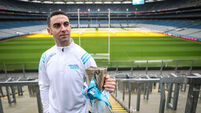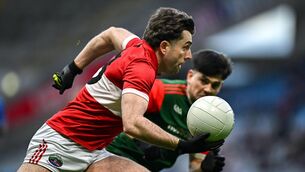Constant evolution: the key to McGuinness model
Chelsea pulled off one of the most effective strokes in club football history. By showing extreme discipline and faith in their system, they utterly frustrated the European champions before drawing blood.
They forced Barcelona to play in front of them, won possession and scampered upfield with decisive breaks, none so clinical as the injury-time forage that concluded with Fernando Torres rounding Victor Valdes to strike the final nail in Barcelona’s coffin.














